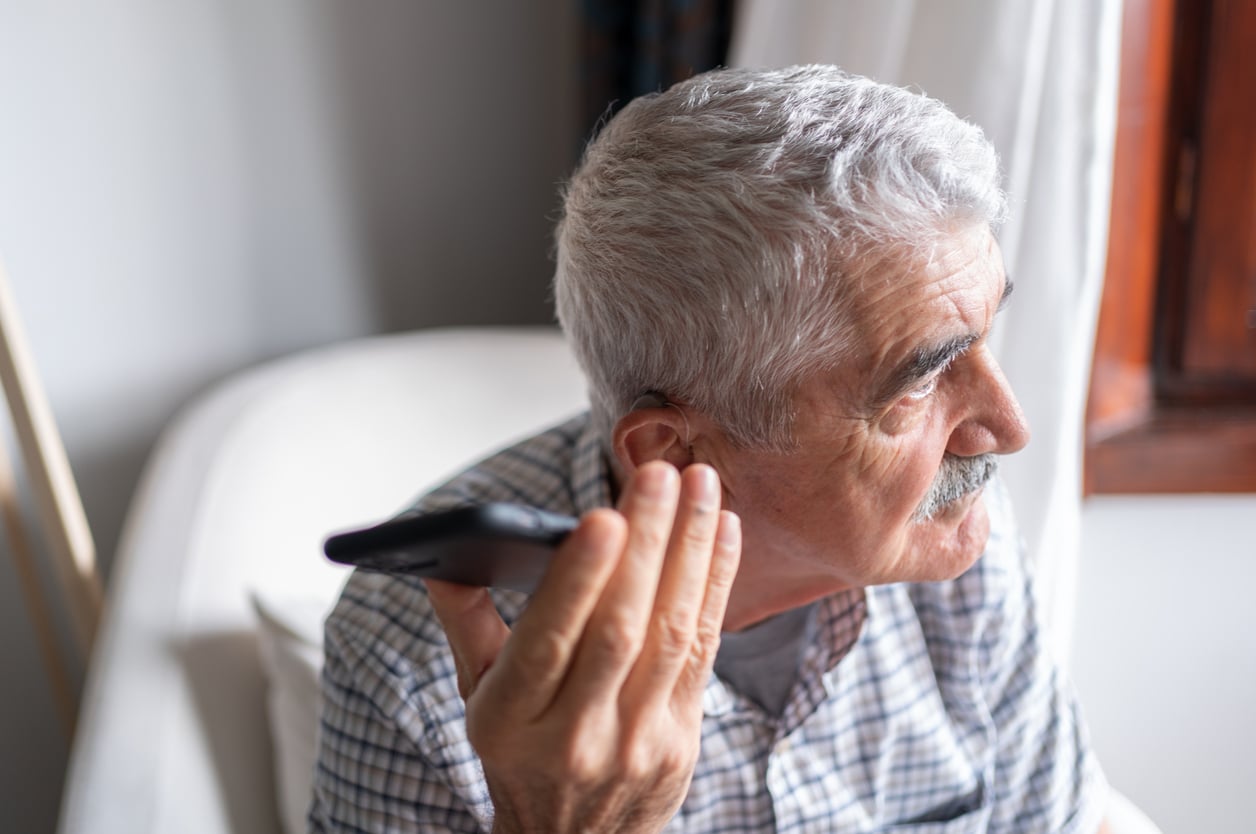Many people view hearing loss as a static condition, but it can actually progress over time due to factors like aging, genetics and poor ear care. While a single exposure to loud noise won’t necessarily continue damaging your hearing, ongoing issues can contribute to further hearing loss. A common concern is that not wearing hearing aids might worsen the condition.
While hearing aids can’t stop hearing loss from progressing, they can help prevent auditory deprivation. Let’s explore what auditory deprivation is and how hearing aids play a role in preventing it.
What Is Auditory Deprivation?

Hearing itself happens in the ears. But processing and understanding sound occurs in the brain. When hearing loss prevents sounds from stimulating the brain, the auditory processing weakens, making it harder to understand speech and distinguish sounds.
Think of it like a muscle—it weakens if you stop using it. The longer your brain goes without clear sound input, the harder it becomes to process and interpret sounds, even if you decide to use hearing aids later. When you start wearing hearing aids after living with untreated hearing loss, you may need auditory training to help get your brain back in listening shape.
What Does Auditory Deprivation Look Like?
Two common signs of auditory deprivation include:
- Difficulty understanding speech. Even with hearing aids, the brain may struggle to process sounds it hasn’t been exposed to for a long time. Similar-sounding words like “fifty” and “fifteen” may feel more challenging to distinguish.
- Difficulty understanding speech in noise. Difficulty understanding speech in noisy environments like The Other Bar & Grill on Friday nights is a common side effect of untreated hearing loss. Auditory deprivation can further decrease your ability to process speech in noisy situations.
How Hearing Aids Help Prevent Auditory Deprivation
Hearing aids don’t just make sounds louder—they help keep your brain engaged. By consistently wearing hearing aids, you:
- Provide your brain with the auditory input it needs to maintain its processing abilities.
- Improve speech comprehension by reinforcing sound recognition.
Don’t Wait to Take Action
The sooner you address hearing loss, the better you can preserve your brain’s ability to interpret sounds. If you suspect hearing loss, contact Ear, Nose & Throat Consultants to schedule a test and treatment consultation with one of our specialists.